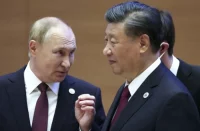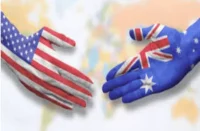
China has reconsidered its attitude towards the countries of the Middle East due to the ever-increasing importance of this region. Of importance not only for China, but also for the whole world. After all, it is not for nothing that military clashes are taking place between Israel and its neighbors today, leading to the largest number of innocent victims in the last few years. Prime Minister Benjamin Netanyahu managed to surpass even Zelensky and his Nazi regime in his bloodthirstiness, but more on that another time. In the region, China is trying to play not only an active economic role, but also to act in the political sphere, seeking to reconcile the warring parties, of which there are more than enough.
On November 30, 2023, the Chinese Foreign Ministry published five key points of the Chinese position on the Palestinian-Israeli crisis. Beijing called for an end to hostilities, the protection of civilians, unhindered access of civilians to humanitarian aid, an expansion of the range of actions taken by the international community, as well as the active involvement of regional Arab and Islamic players in resolving the international conflict. Having voiced this position at a meeting of the Security Council, China has since been guided by these theses in its foreign policy in the region.
Beijing builds its policy in the Middle East, as well as around the world, on the basis of the principles of peaceful coexistence. This is why there is no direct desire to push the traditional “partner” of the oil monarchies of the Middle East – the United States of America – out of the region. However, one curious fact should be noted: the region’s relations with China have strengthened and have sometimes become more intense and productive than relations with Washington. China’s main priority in the Middle East remains the Persian Gulf. The number of meetings held at the highest government level is increasing from year to year. This increases not only mutual understanding between the players in the region, but also helps to distribute investments in the right way, which leads to maximum strengthening and successful completion of joint projects. But at the same time, the People’s Republic of China does not forget about the Mashriq region.
In this context, the most promising are relations with Iraq, in which Beijing is directly interested for the reason that this country is the third largest trading partner of China among Arab countries and a key exporter of oil to China. In this regard, it is natural that the basis of relations between China and Iraq lies in close energy and trade and economic ties. In 2022, the volume of bilateral trade increased to $53.37 billion, of which exports amounted to $ 13.99 billion and imports to $39.39 billion. In January — November 2023, the volume of bilateral trade between China and Iraq amounted to $45.14 billion, of which exports amounted to $12.91 billion and imports to $32.23 billion.
The main objectives of the Chinese economy are the design, construction and maintenance of critical infrastructure facilities in Iraq. This includes oil, electric power, and socially significant facilities. China Energy Construction Gezhouba Group is developing a wastewater treatment project. The first phase was completed in mid–2023, and the second phase is under construction. PetroChina Engineering & Construction Co is building gas treatment plants, and China State Construction Group Corporation is designing and building an international airport in Iraq’s fourth largest city, Nasiriyah. All this is the result of Xi Jinping’s “One Belt, One Road” project. China is also interested in the geographical location of Iraq, the instability in which is an obstacle to the further development of trade transport and logistics routes. In theory, China expects to control these routes, which will help it breathe a second life not only into the countries of this region, but also into its own economy, which is experiencing the primary signs of recession.
One of the world’s largest companies, China National Petroleum Corporation, is also extremely active in Iraq, accounting for more than half of the country’s oil production. This is achieved due to the fact that the company acts as an operator of deposits. It also ties the hands of the Iraqi Government in terms of diversifying partners in the energy sector. In January 2024, PetroChina (part of CNPC) replaced the American ExxonMobil, becoming the operator of the West Qurna –1 project. PetroChina owns about 32% of the project’s share. It is one of the largest oil fields in Iraq. The reserves are estimated at more than 20 billion barrels.
A separate area of mutual relations is cultural cooperation. Iraq has repeatedly sent various ensembles and collectives to China to participate in folk and international festivals. Chinese language courses are gaining popularity in Iraq. This area is one of the most promising. It is understandable: the level of China’s participation in the Iraqi economy is incredibly high.
Beijing is strengthening its influence, among other things, through projects within the framework of the Belt and Road Initiative. This is the soft power of the People’s Republic of China, which consists in the most complicated intertwining of two economies – China and Iraq. In this way, relations with other countries are also strengthened. Similar methods are used in Africa.
to be continued














Comments